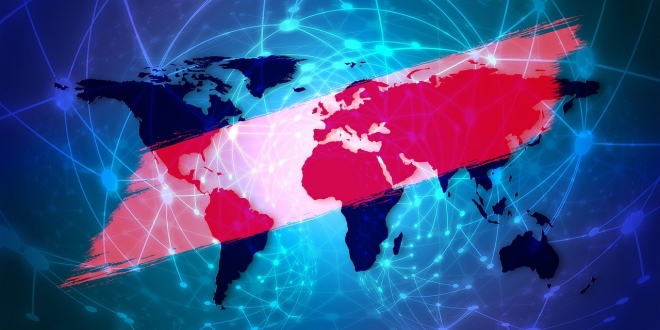Other than hospitals, no one is harder hit than retailers around the world and online. Merchants face growing challenges with their supply chain, overwhelming consumer demand or lack of demand, forced closures by some governments, decreased shopping by many consumers, and hoarding of products by other consumers, diminishing supplies and driving up prices for some essential products.

Some leaders like Gov. Andrew Cuomo in New York, Gov. Jay Inslee in Washington state and California Gov. Gavin Newsom have shown remarkable leadership in early US response to coronavirus. At the White House, not so much.
Meanwhile, retail owners, restaurants, shopping centers, and many businesses in the hardest-hit areas have shut down except for grocery stores and other essential services like pharmacies. Employee layoffs and work from home are commonplace as businesses struggle to help contain the spread of the virus and encourage social distancing.
Retail response varies
While businesses and consumers struggle and juggle to respond to the new reality of daily life in a pandemic, governments wrestle with how to help citizens survive with plans for economic packages, corporate bailouts, mortgage and rent freezes, emergency field hospitals, and innumerable other responses. Meanwhile, some citizens exhibit NIMBY (not in my backyard) behavior, acting as if they have no responsibility to their neighbors, holding community or large family gatherings and ignoring the fact that coronavirus can hit anyone, at any age and be transmitted by those not showing symptoms.
We thought it would be useful to provide a roundup of retailers, e-commerce and other business responses in hopes that sharing information, ideas and problem-solving strategies may help others survived in the next months ahead.
Retail and coronavirus news roundup

Warning coronavirus could plunge world into biggest peacetime slump since the Great Depression
The Centre for Economics and Business Research forecasts the global economy to shrink by at least 4% this year. The brutal recession triggered by the Covid-19 outbreak is likely to shrink the world economy by at least 4pc this year, the Centre for Economics and Business Research has warned. Such a decline would represent some $3.6 trillion (£3.1 trillion) in lost output. If the CEBR’s forecast is correct – and it cautions, there is a “huge margin of error” – the fall would represent the worst year for global growth since 1931 outside of wartime according to the think-tank. Read more…

British shoppers hoard food worth £1bn – and should be ‘ashamed’
Britain has stockpiled £1bn ($1.17 billion) worth of food in just three weeks, it was revealed on Saturday, as a health chief told shoppers hoarding supplies during the coronavirus outbreak they “should be ashamed” that NHS workers are being left without after long shifts. Medics are facing empty supermarket shelves despite manufacturers increasing production by 50%, the daily Downing Street press conference was told. Read more…

Mobile Minute: Food delivery apps see spikes amid global coronavirus quarantines
With schools closed, events canceled and employees working remote, many are turning to delivery services that bring food (and other necessities) to their door. As COVID-19 pandemic spreads, we are seeing consumers turn to mobile to fulfill their needs. Engagement with grocery and food delivery apps has accelerated rapidly as consumers look to avoid personal risk and try to flatten the curve. Read more…

COVID-19: The impact of coronavirus on the mobile economy
We’ve seen the impact of coronavirus manifest in phases. As new outbreaks emerge, governments and businesses are responding with containment measures. China was the first wave, followed by Italy, Japan and South Korea, then France and Germany, and now we are starting to see indications of the impact on the mobile economy in the US and UK. People are turning to mobile during this time as they are encouraged or required to stay home — to seek information, continue working, be entertained, foster connection and fill the gaps of regular life. Read more…

The coronavirus tsunami: What’s to come for US retail
It’s hard to imagine where it will end. Retailers like Apple, Nike, and Warby Parker are shuttering their doors to stem the spread of Coronavirus; Amazon’s “Prime” promise of 2-day delivery is laughable on a good day with the company being barraged with orders (and trying to hire 100,000 workers to help), and retailer Patagonia is going one step further by closing their online store until the virus abates. While China’s manufacturing bounces back to life after experiencing significant drops in new Coronavirus cases, with much of the world months behind or more on the virus curve, the question remains whether there will even be orders to fill. Read more…

Amazon says it is out of stock of household items and deliveries are delayed due to coronavirus demand
Amazon warned it’s experiencing Prime delivery days and running out of stock of popular household items amid the coronavirus outbreak. The issues are a result of a “dramatic increase in the rate that people are shopping online,” Amazon said in a blog post that was updated on Saturday. Some popular brands and items in the “household staples” categories were out of stock, while Amazon said some of its “delivery promises are longer than usual.” Read more…

Coronavirus threatens to wipe out 5 years of gains in the global luxury market
Initially viewed as largely a short-term challenge in China and neighboring Asian markets, it has now spread to Milan, the home of Italian luxury. Asia alone accounts for about 35% of the €330 billion ($362 billion) global luxury market. Altagamma warns the effects of the virus are going to extend beyond the first half of 2020 into 2021. The executives surveyed expect global luxury market sales to decrease between €30 to €40 billion ($33 to $44 billion). That would push the sales of global personal luxury back to levels not seen since 2015, according to BCG. Read more…

Planning for recovery: lessons learned from China
Recent reports from China show how bad its economy dipped and how much it’s coming back. Most reports put China in the initial stages of recovery. Six weeks after the initial outbreak, supply chain congestion stands at 73% of 2019 levels, up from 62% at the worst part of the epidemic. That means 73 % of Chinese goods are actually getting through to store shelves. Coal consumption (not the most environmentally friendly metric) has bounced from 43% to currently 75% of 2019 levels. Overall confidence is also climbing. Here’s a mind-boggling stat about how close the Chinese economy came to shut down: real estate transactions fell to 1% of 2019 levels. They’re now at 47%. Read more…
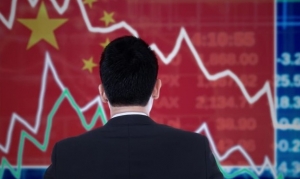
How Chinese companies have responded to coronavirus
China appears to be in the early stages of an economic rebound, according to our analysis of high-frequency data on proxies for the movement of people and goods, production, and confidence. While this recovery could be vulnerable if a new wave of local infections were to emerge, many Chinese companies have already moved beyond crisis response to recovery and post-recovery planning. Based on our experience supporting Chinese enterprises with their recovery plans, we have extracted 12 early lessons for leaders elsewhere. Read more…

Coronavirus fears give cashier-less retail an opening in Shanghai
It’s hard to imagine a city of 24 million on virtual lockdown, but that’s what the coronavirus has done to major Chinese cities like Shanghai. For now, the massive crowds are gone, replaced by restricted movements, empty metros, and a rush on face masks and hand sanitizer. But grocery stores are open. They have to be. It’s an odd, and unwelcome, test of new retail technology that allows consumers to shop with minimal interaction with others. China’s a bit ahead of the US in opening checkout-free retail stores, but it’s still an uncommon experience, and nobody knows quite what to expect given the emergency that has hundreds of millions of Chinese citizens at home most of the time, but still in need of supplies. Read more…

As the back office becomes the home office, B2B payments come into the digital age
Large organizations such as JPMorgan Chase and technology firms in Silicon Valley have moved large numbers of people to remote work in an attempt to slow the spread of coronavirus. That’s already causing glitches, even for tech-savvy firms in Silicon Valley. For smaller businesses, payment processing issues add to a considerable list of challenges. “Once you start doing remote work, you start with communications. But there are other needs,” said Mich Remley, CEO of MineralTree, a Cambridge, Mass.-based middle-market payment processor. “One challenge is most accounts payable departments are not set up for remote work, so they’re not ready to switch to a work-from-home policy, especially in an emergency.” Read more…
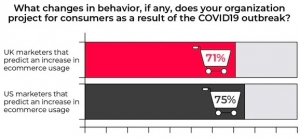
How is coronavirus impacting the retail industry?
Primark is one of the latest retailers to announce the temporary closure of some of its stores, in a bid to help stop the spread of coronavirus. It has closed outlets in Italy, France, Spain, and Austria (where 30% of its revenue is generated), while its UK and Northern Ireland stores – at the time of publication at least – remain (perhaps controversially) open. Primark is certainly not the only one to take this kind of action. Global retailers including Glossier, Nike, Urban Outfitters, and Patagonia have all indefinitely shut their stores, purely to help prevent further outbreak. Read more…
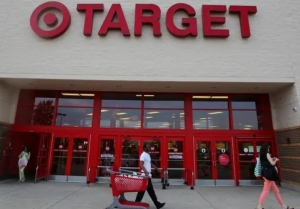
Industries hit hardest by coronavirus in the US include retail, transportation, and travel
While all industries have been affected by the COVID-19 pandemic, some bear the brunt of the downturn much more than others. 24/7 Wall St. reviewed industry publications and data from the Bureau of Labor Statistics to determine the US industries being devastated most by the outbreak. The restaurant industry is one of the most exposed industries to major upheaval as a result of the pandemic, as the Centers for Disease Control and Prevention has recommended avoiding groups of over 50 people. Some cities and states have told restaurants to switch to takeout only. Millions of jobs in the sector could either be lost or severely impacted by the outbreak. Read more…
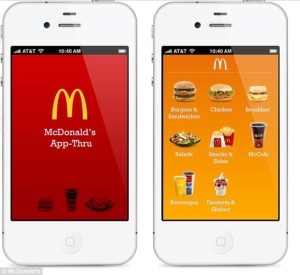
Walmart, McDonald’s, Home Depot, and 16 other retailers share how the coronavirus outbreak could affect business
So far, international companies have had to contend with shuttering stores in affected areas, accommodating sick and worried employees, and dealing with supply chain disruptions. Business Insider contacted a slew of consumer companies to find out how they were contending with the outbreak. Here’s a look at how different big-box stores, luxury brands, and fast-food chains are responding to the coronavirus. Read more…
Stay safe and take care of your employees, your customers, and your suppliers.

